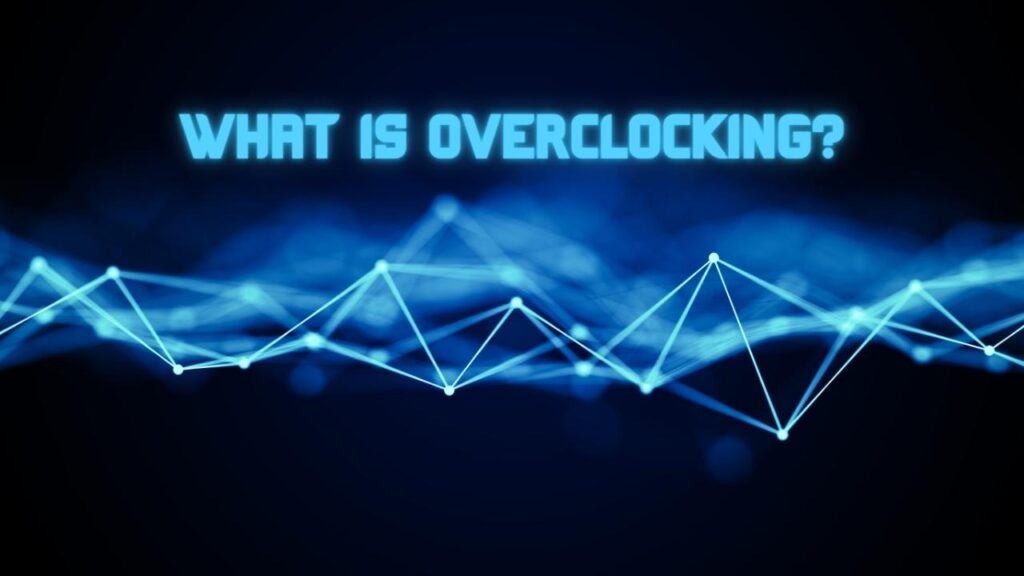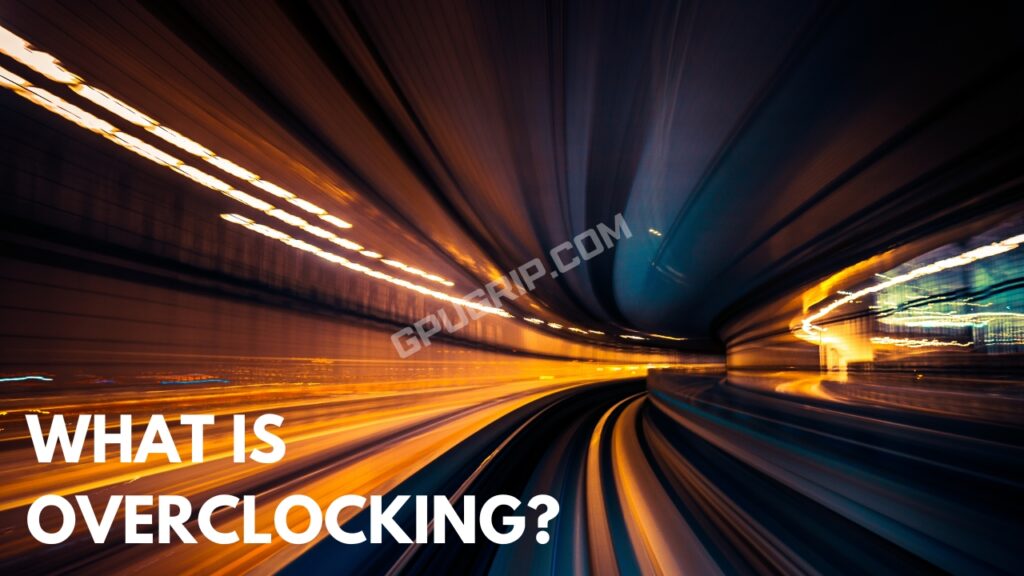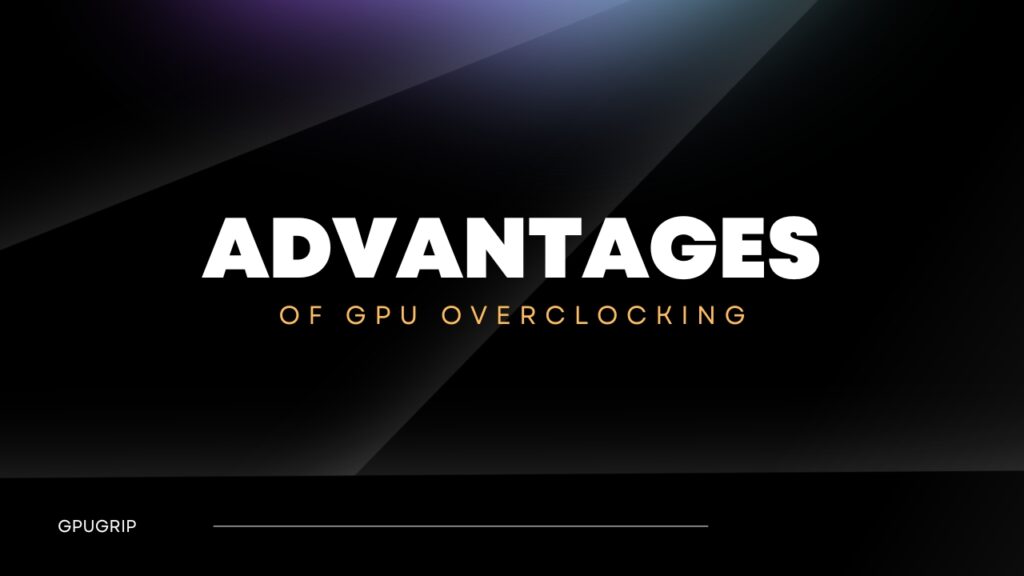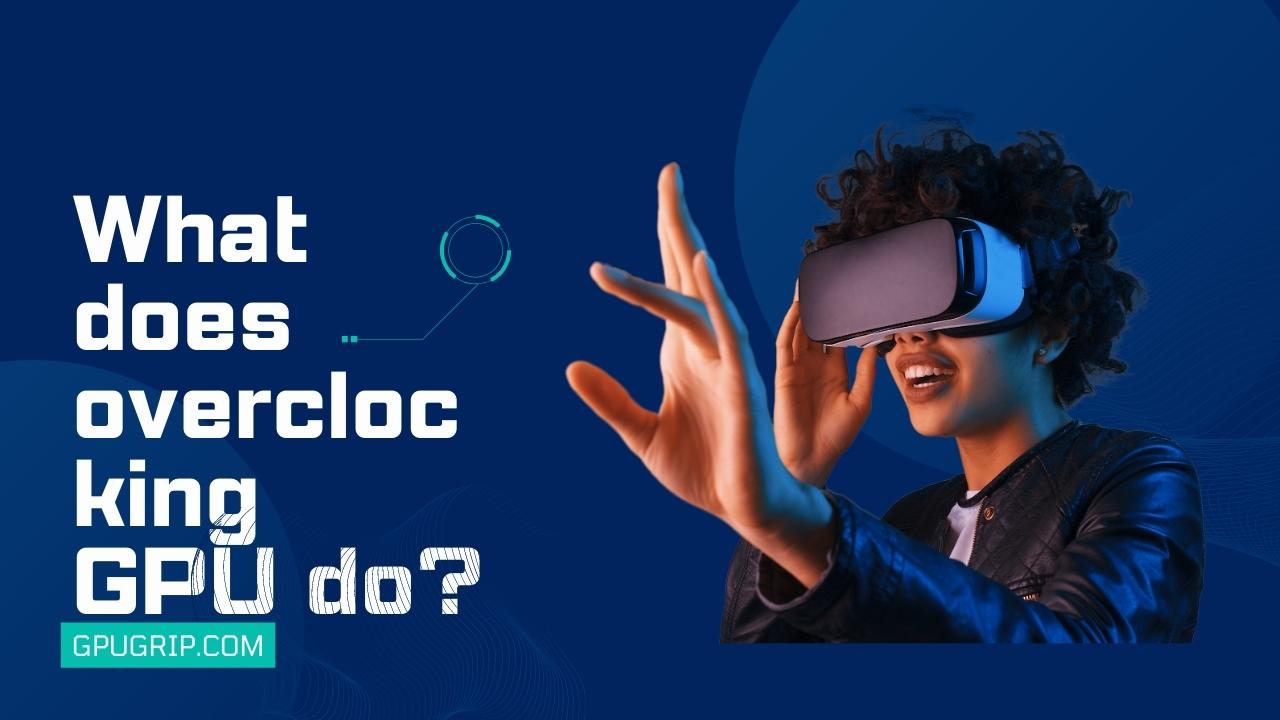Quick Navigation
Whenever you indulge in your favorite title, you want to get the best out of your games. And thanks to GPU, you can achieve this. But how can you achieve the best performance from GPU? Simply if you overclock the GPU.
You can take your GPU performance to another level by overclocking it. It works the same as overclocking your CPU, except that GPU overclocking gradually raises the graphics card’s core frequency while also watching its temperature and stability with a benchmarking program.
What is GPU overclocking, and what does it do, let’s explore this in this article!
You may also Like: Memory Clock vs Core Clock–Which one is Good for your GPU?
What is Overclocking?

Generally, overclocking refers to exceeding the design limits of processors to boost performance. You might be familiar that GHz is the unit of measurement for a processor’s efficiency.
If you plan to overclock a GPU, you might notice an increase of 10% to 20% in GHz. Depending on the title you are playing, you can enjoy a better and faster frame rate or have higher graphical settings witan h ideal FPS rate thanks to the increased performance of your GPU.
What does overclocking a GPU do?

Overclocking a GPU improves the card’s performance by increasing the rate at which the graphical processor operates.
The base clock in every GPU is fixed at a given speed. However, the graphic cards usually come with settings to various cards come with the ability to exceed the limit established by the manufacturer.
Although you will get a performance boost with overclocking, it will make your GPU hotter and use more power from the power supply. So to protect your GPU from overheating due to overclocking, you need to find the middle ground between increased performance and a steady temperature.
However, note that every GPU is unique, and no two GU share the same overclocking speed. For example, your GTX 1080 can safely overclock to 2000 MHz than your friend’s GTX 1080, which overclocks 180MHz. So, you must find the sweet spot of your GPU overclocking speeds.
Moreover, note that the MSI Afterburner overclocking application sometimes has graphical glitches or leads to the computer crashing if you severely overclock your GPU.
However, if this occurs, you can always reverse the GPU rates to a safe level. It’s best to start slow and low and gradually work your way up.
Why should I Overclock GPU?
Since you have more performance perks with GPU overclocking, it will make gaming more fun.
In addition, you can have immersive gameplay on a less powerful PC by overclocking your present GPU.
Although it gives a performance boost, one overclocking drawback is it increases power consumption. And if the GPU is not adequately cooled during the process, it will damage the chip. And last but not least, the increased wattage consumption of the GPU may strain your power supply, leading to overheating from your power supply.
Advantages of GPU Overclocking

When you overclock the GPU, the primary advantage is the higher speed and performance during gameplay. Imagine getting untapped performance from your card with extra longevity and enhanced speed. Moreover,r the overclocking of the GPU will save you from getting a new video card since you can have an immersive gaming experience with an old card. In addition to improving gaming performance, overclocking the GPU improves other graphic-hungry processing such as 3D rendering and twitch streaming.
Better FPS
Without investing in a new card, you will see a boost in frame rates of 5% to 15%. However, it all boils down to how much GPU overclocking you can accomplish. Although a small frame jump may not benefit much, it can significantly affect gameplay and provide an immersive gaming experience. If you want to outperform other players in AAA titles overclocking your GPU can help you gain the upper hand.
Enhanced Graphics
Not only does overclocking increase performance, but it also significantly impacts visual fidelity. Since GPU overclocking enables faster fetching and quick processing, you can run at maximum graphical settings without a lag. In fact, overclocking let you enjoy immersive games as of games’ increasing high resolution.
Savings Cost
If you’re a gaming enthusiast, you know that putting together a gaming PC requires a handsome investment. With that in mind, graphics cards are sometimes the single most expensive component in the entire PC. The major advantage of GPU overclocking is that it enables you to enjoy the best frame rates and graphics without investing in a new GPU. If you cannot stay current with the latest GPUs, you can achieve equal performance from your old GPU thanks to overclocking.
Problems with GPU Overclocking

Overheating problems
As mentioned earlier, the overclocking makes your graphic card power-hungry. So if your power supply needs more wattage for GPU, it will create problems for you. Higher levels of overclocking risk harming the hardware due to the excessive heat of the GPU. Since overclocking puts additional strain on the GPU and VRAM, they will consume more power and emit extreme heat.
In addition to using more power from the PSU, the overclocking will produce more heat.
Potentially Shorter Lifetime
One major drawback of GPU overclocking is that it shortens your PC’s lifespan. Since the GPU gets power-hungry and becomes hotter by overtaxing the GPU, it will damage the neighboring components in the case. So if you are an amateur overclocker, you might risk shortening the life of your PC.
Power Consumption Increase
The power consumption rises, and performance increase goes hand in hand as you increase one by boosting the other. For a GPU to overclock for a performance boost, it must consume an additional 50 to 100 watts from PSU on average. So you should know if your power supply offers adequate wattage to accommodate overclocking. This will prevent your power supply from blowing up due to overclocking.
The Takeaway–Does GPU Overclocking Pay Off?
Before deciding whether overclocking is the best for a performance boost or not, it’s critical to understand your gaming requirements. GPU overclocking is the best option to get a performance boost without getting a new card, but GPU overclocking has some major disadvantages. You should weigh both advantages and drawbacks, like overheating and power consumption, and then decide. It’s crucial to remember that overclocking uses a lot of power and, if performed improperly, can harm hardware.

